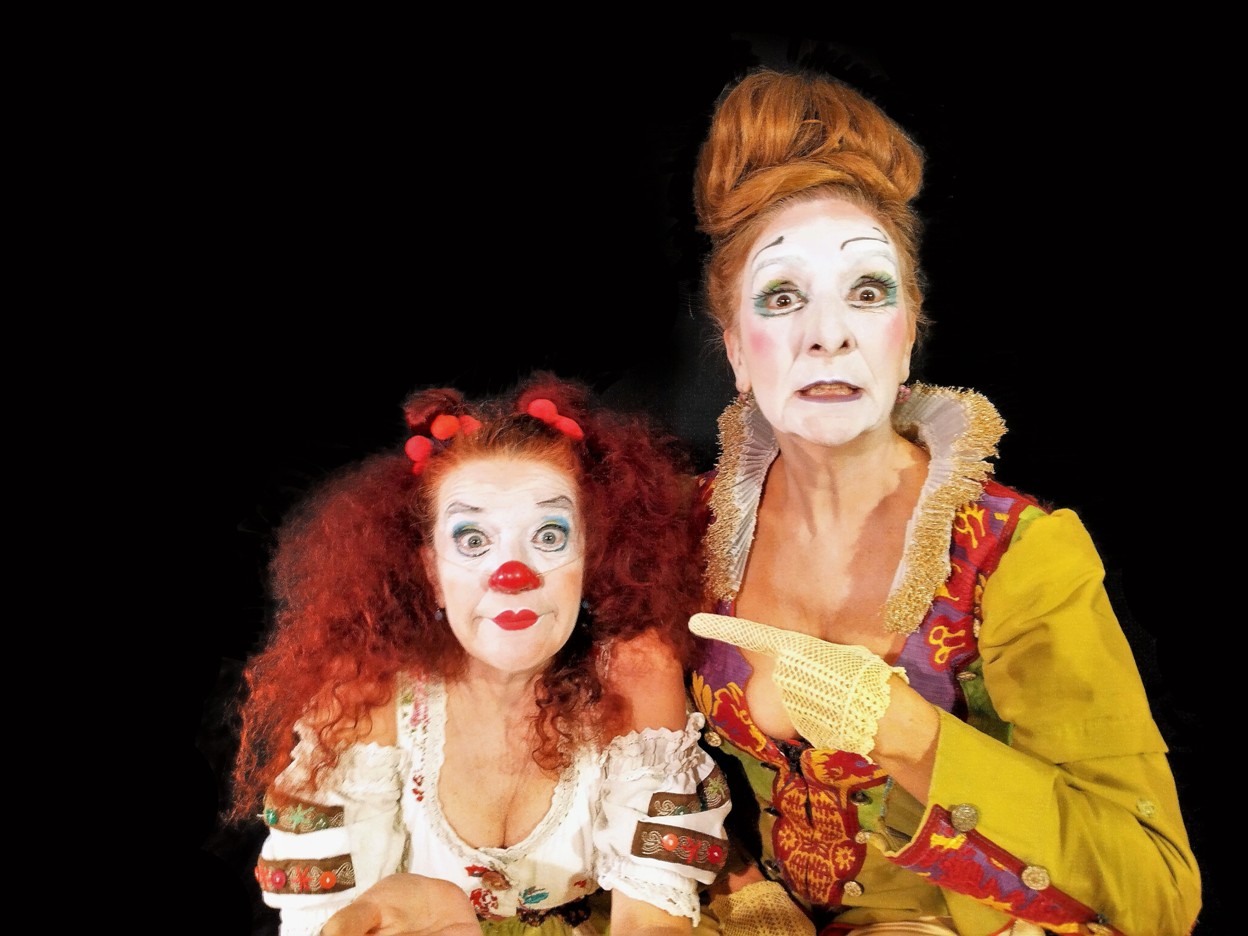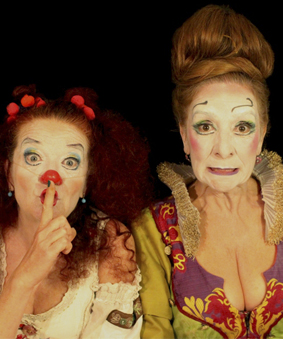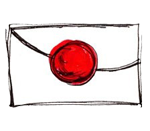
“Veus que no veus” (You see that you don’t see) presents a female version of the so-called “classical entries”, the starting acts of a show or those that link different scenes. On the one hand, in the role of Auguste, there is Pepa Plana. On the other, Clara del Ruste plays the role of Whiteface. How do these roles change, and what significance do they take when played by two female clowns instead of male ones? Pepa Plana’s Company has always claimed the figure of the female clown, and now she presents some of the most classic circus acts. Is it all about laughing? Yes, but not only that, it’s also about talking, playing and, perhaps, also biting.
Credits

Clown auguste: Pepa Plana
Clown blanche: Clara del Ruste
Direction: Joan Arqué
Scenography: Xavier Erra
Assistent direction: Inés García
Costumes: Rosa Solé/Imma Ebjol
Choreography: Roger Julià
Lighting: Yuri Plana
Music: Llluís Cartes
Music and voice in Tirallonga: Roser Pou
Photography: Aureli Sendra / Tony Lara
Production: Cia Pepa Plana
What the press said:
Veus que no veus
Pepa Plana is magnificent and extraordinary. The energy, the wealth of her gestures, the infinite resources she demonstrates, the rhythm on the stage, the movement that accompanies every word, the contrast of moods and, ultimately, the communication skills of Pepa Plana on the stage are so powerful that make this show one of the best in her career, since it brings together her theatrical talents with a terrain that she quite never entered before: the circus clown.
And she presents a replica as a great novelty, the actress Noël Olivé, a real discovery that plays the role of Whiteface and a person of order in the face of the Auguste woman’s raucousness. The female version of two of the most classic circus numbers is one of the great new features of the show and a tribute to all those grandmothers who could never be clowns. The show talks about the inequality suffered by women from a feminist perspective. "If you have seen us it's because we are here", say Plana and Olivé at the end of the show. And we hope that they’ll keep being here and that we can continue to see them in many venues across Catalonia, because this show, for what we have seen, is an indispensable play that we hope it will find its place. It deserves it.
Marcel Barrera, Recomana 19/10/18.
Veus que no veus
The metaphors are over, and Pepa Plana presents herself without filters. Now, accompanied by Noël Olivé, who assumes the role of the White Clown: tall, stuffy and authoritative, but pathetically defeated by the spontaneity and empathy of an Auguste such as Pepa Plana that tells it like a jester to his king. And who manages to entertain the people at the same time. These two female clowns make a show as tender as a mattress, but with a point of healthy cynicism. They reclaim women on the stage, and in the management positions of theatres. And they do so with classic clown gags, making sure that they, amusingly, don’t step on Tortell Poltrona’s adaptations and relying on Monti’s motto: “we want to do our work and to be taken seriously at it”.
Jordi Bordes, Recomana 20/10/18














